
Richard Spurr 1am - 4am
7 June 2023, 07:19
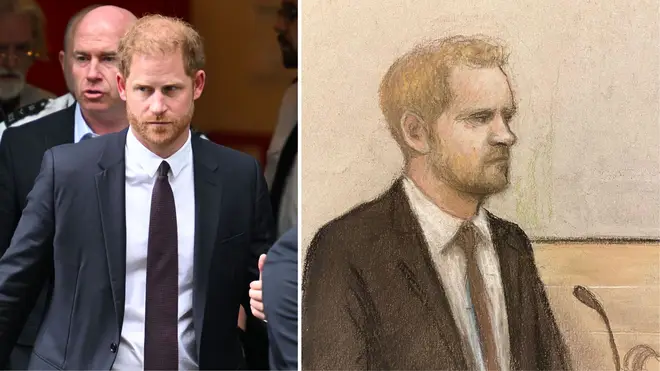
Prince Harry accused the tabloid press of “inciting hatred and harassment” in his private life as more details emerge from his witness statement.
Prince Harry's witness testimony, which is 55 pages long, includes allegations against the Mirror Group Newspapers (MGN) of characterising him as a “playboy prince” and “thicko” when he was young.
When you’re a member of the Royal Family, he said, you get “cast into a specific role by the tabloid press”.
“You're then either the 'playboy prince', the 'failure', the 'drop out' or, in my case, the 'thicko', the 'cheat', the 'underage drinker', 'irresponsible drug taker', the list goes on,” he said.
Speaking to LBC's Nick Ferrari at Breakfast broadcaster Andrew Neil said the Royal did better than he thought he would but it was clear the Duke was "not across his brief."
Neil told Nick: "He did better than I thought he would in terms of his demeanour, he's not used to hostile questioning, he only ever gets softballs lobbed up the leg side, but that said it still came across that he didn't really know what he was talking about, that he wasn't across hid brief, that some of the information he thinks came about by hacking or other illegal means, actually to his surprise came about from Palace statements or followups from other stories."
Neil added Prince Harry clearly "found it very hard to admit that he was wrong."

Court artist sketches Duke of Sussex giving evidence at High Court
Harry wrote: “I genuinely feel that in every relationship that I've ever had - be that with friends, girlfriends, with family or with the army, there's always been a third party involved, namely the tabloid press.”
He said he brought the claim against MGN because he wants “to hold people to account for what they have done, so that they can't hide behind their own institution or organisation” and is “determined to get to the bottom of it once and for all”.
The Duke of Sussex also said: “As a teenager and in my early twenties, I ended up feeling as though I was playing up to a lot of the headlines and stereotypes that they wanted to pin on me mainly because I thought that, if they are printing this rubbish about me and people were believing it, I may as well 'do the crime', so to speak.
"It was a downward spiral, whereby the tabloids would constantly try and coax me, a 'damaged' young man, into doing something stupid that would make a good story and sell lots of newspapers. Looking back on it now, such behaviour on their part is utterly vile,” he said.
Listen and subscribe to Unprecedented: Inside Downing Street on Global Player
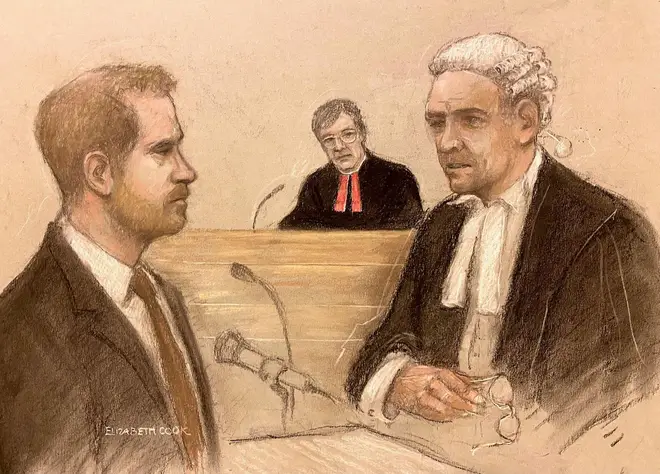
The duke's case against MGN started on Monday, when his Barrister David Sherborne claimed he was subjected to unlawful information-gathering activity. Harry gave his first day of evidence on Tuesday.
Prince Harry also confessed to High Court on Tuesday that his memoir Spare contradicted some of the claims he made in his legal testimony against Mirror Group Newspapers.
Prince Harry told court on his first day in the witness box that he could not remember if he wanted to meet his mother’s former butler Paul Burrell, even though the duke claimed his opposition to the meeting allegedly caused a dispute between him and Prince William.
A 2003 article in The People reported that the brothers were in disagreement over whether to meet Mr Burrell, Princess Diana’s former butler who wrote a “tell-all” book about the Princess after her death.
The Prince of Wales wanted to meet the former butler so they could put a stop to any future stories being published. But the article claimed the Duke of Sussex had no intention of meeting Mr Burrell because he was a “two-faced s***”.
Harry’s lawyer, David Sherborne, claimed this report was responsible for the erosion of Harry and William’s relationship, as it sowed “seeds of discord”.
When Harry was questioned about the piece, it was pointed out to him that this seeming opposition he had to the meeting was omitted from his memoir, Spare.
Andrew Green KC, for MGN said: “There is no suggestion in Spare that you were firmly against a meeting.”
Harry replied: “No, because I wrote it when I was 38 years old and in this story I was 18. I assume I would have wanted a meeting…I’d love to give him a piece of my mind.”
When finally pushed, the duke admitted: “I can’t remember whether I wanted a meeting or not.”
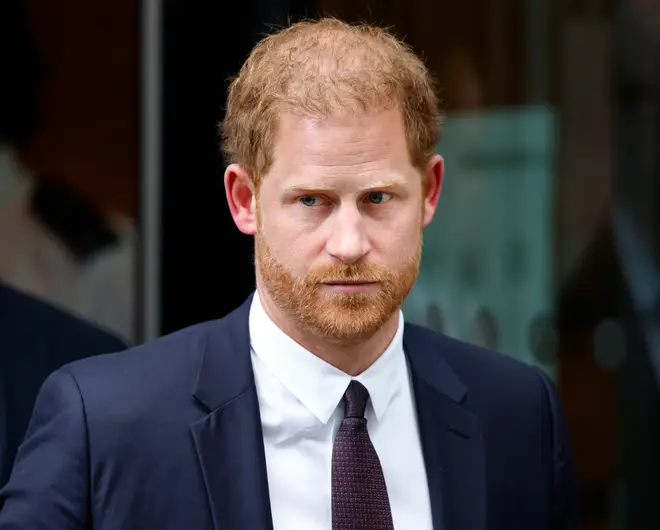
Also referenced in his evidence was an article from The People in 2002, headlined ‘Plot to rob the DNA of Harry’, as it claimed Harry’s DNA needed to be checked to be sure who his father was.
Princess Diana had an affair with Major James Hewitt, which sparked a media frenzy and raised questions about the duke’s parentage at the time.
The duke asked: “Were the newspapers keen to put doubt into the minds of the public so I might be ousted from the royal family?”
Read more: Softly-spoken Harry visibly 'warmed up' as he unleashed his 'bombshell evidence,' says LBC reporter
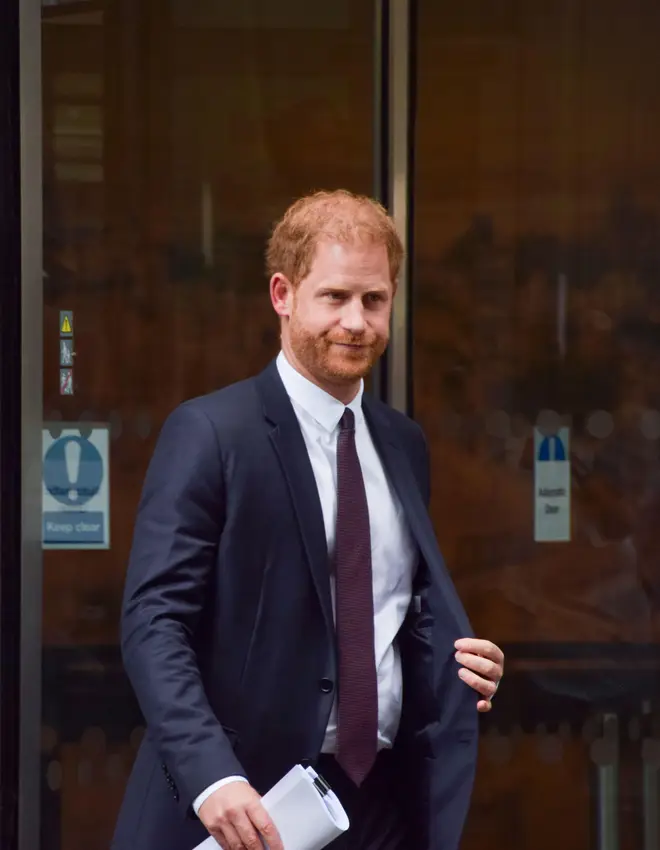
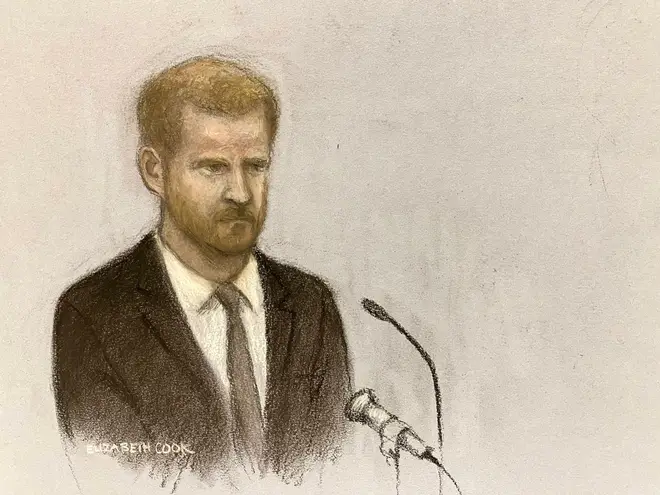
It was also put to the duke on Tuesday that he said he was first first issued with a mobile phone when he went to Eton in 1998, but the trial claims the hackings started as early as 1996.
Harry replied: "That's incorrect. My security at school had a separate room with a land line."
He said "most Sunday nights", after being dropped off by his mother "the first thing we would do is to use the phone to ring her... in floods of tears".
Addressing the High Court in his opening statement on Monday, Harry’s lawyer said the hackings started "right from when he was a young boy at school" into adulthood, adding “nothing was sacrosanct or out of bounds."
Harry arrived outside the Rolls Building in central London at 9.36am in a black Range Rover, wearing a black suit.
He walked into the building without answering reporters' questions before passing security checks inside.
The Duke is set to return to the witness box for further cross-examination on Wednesday.